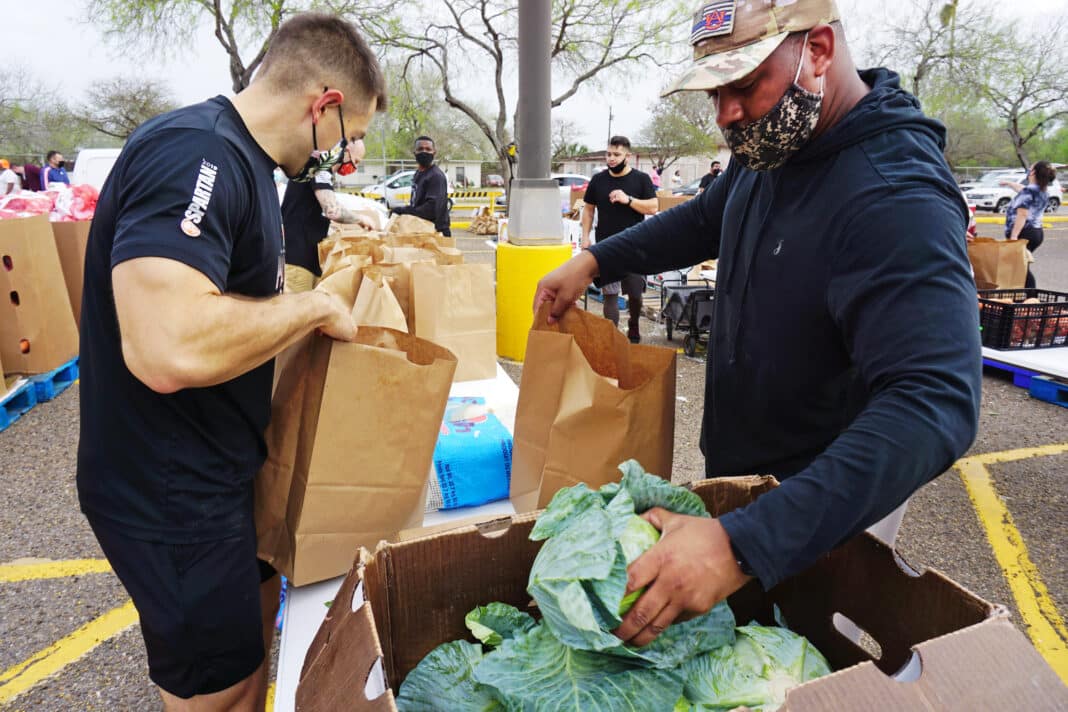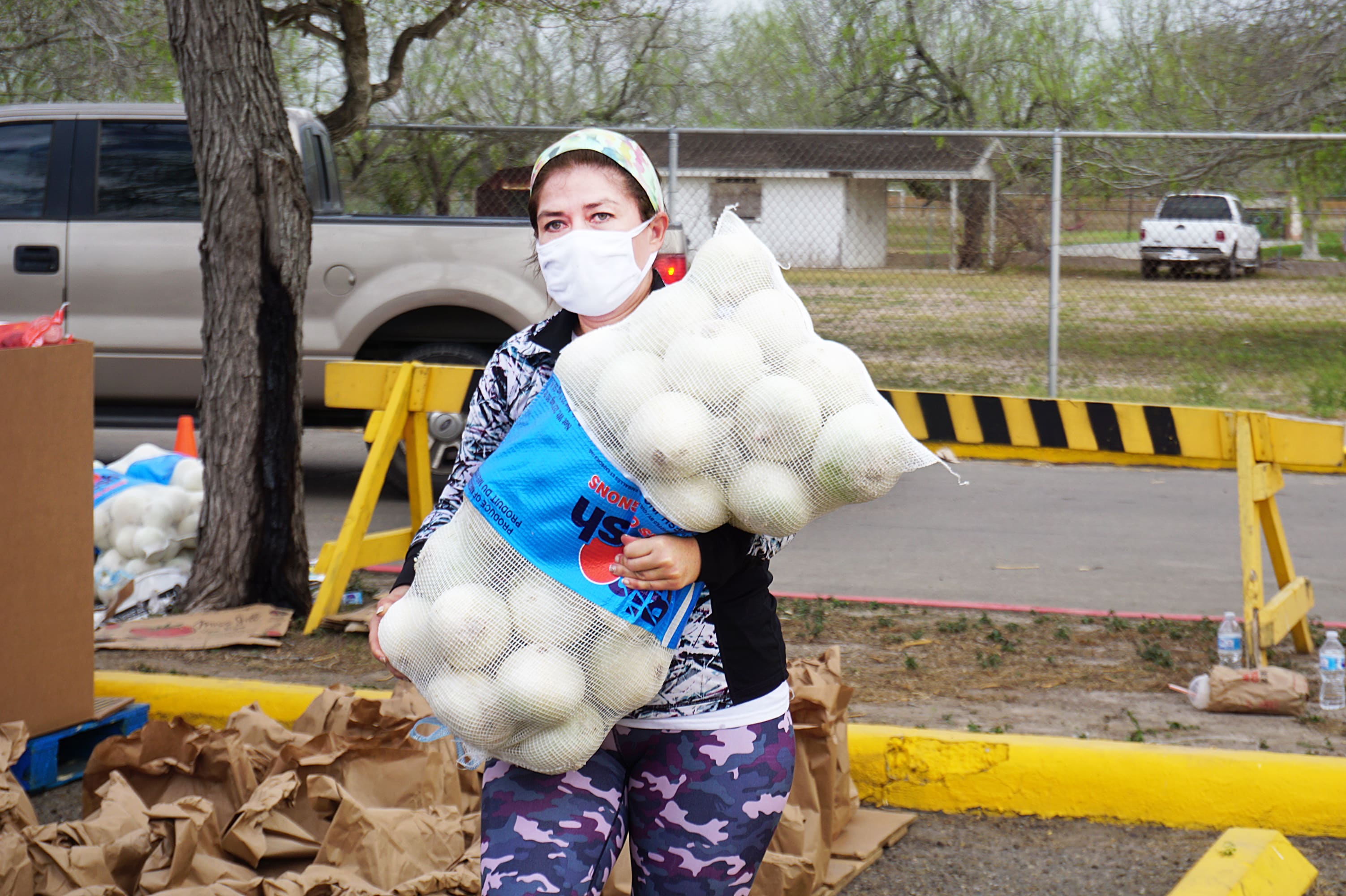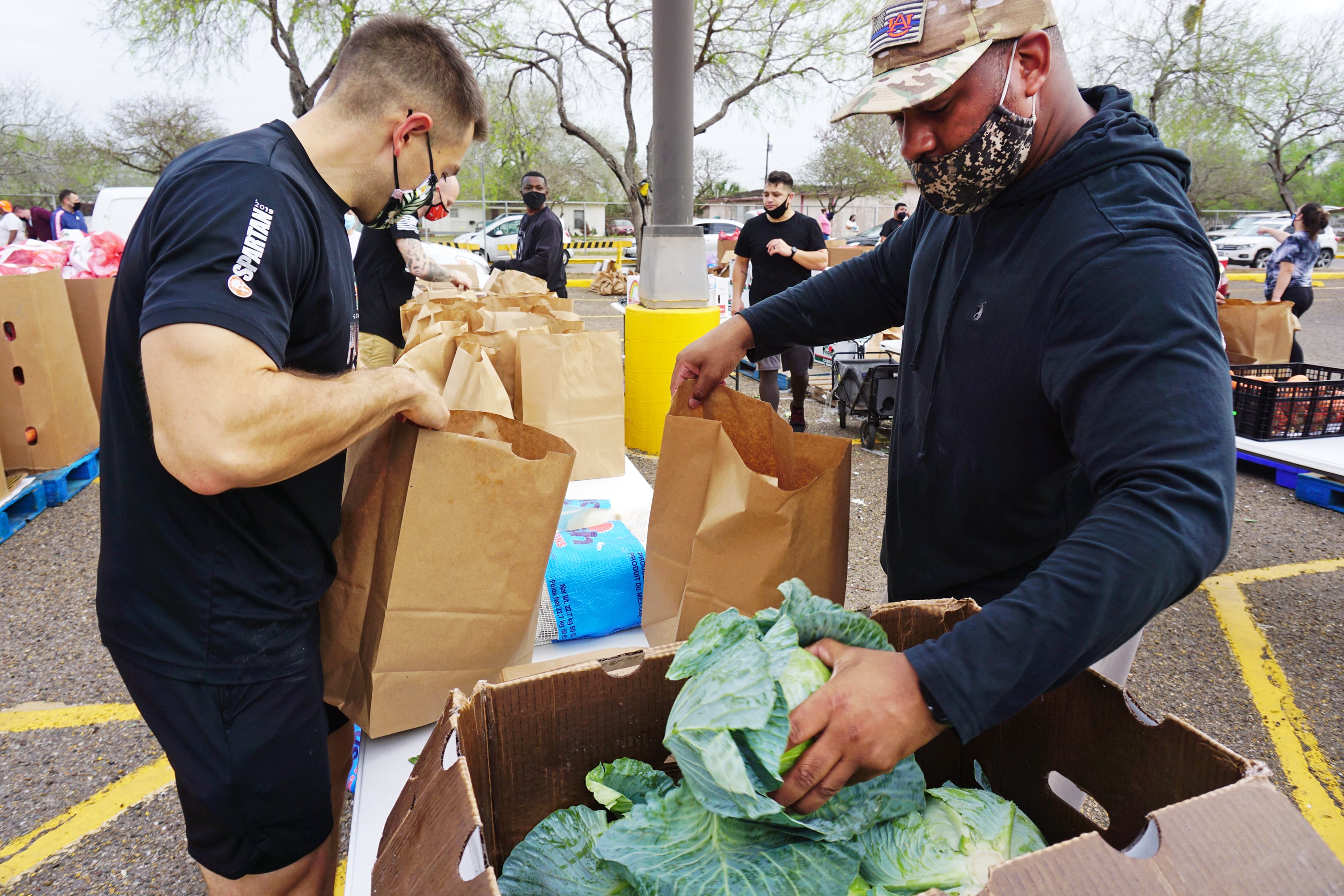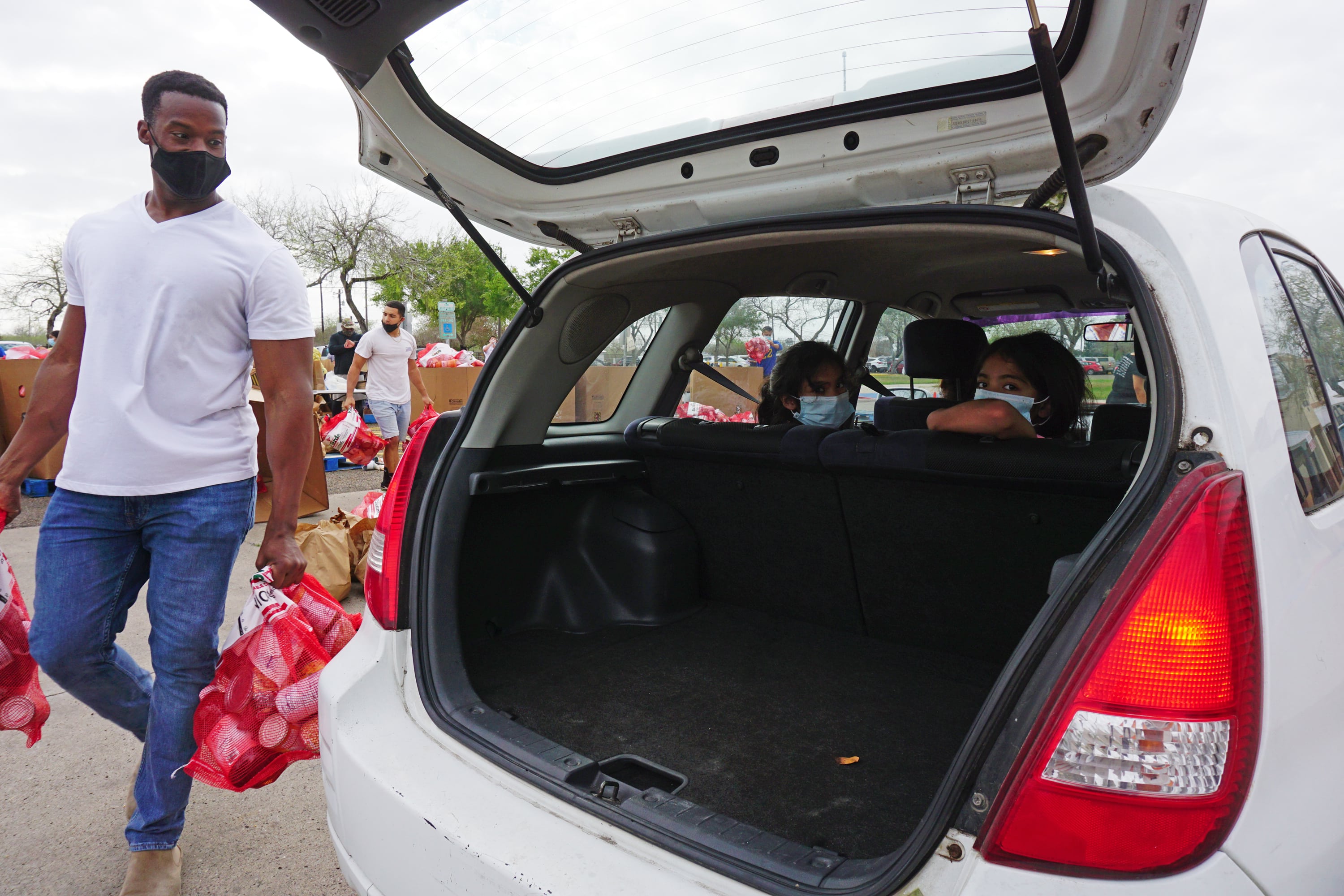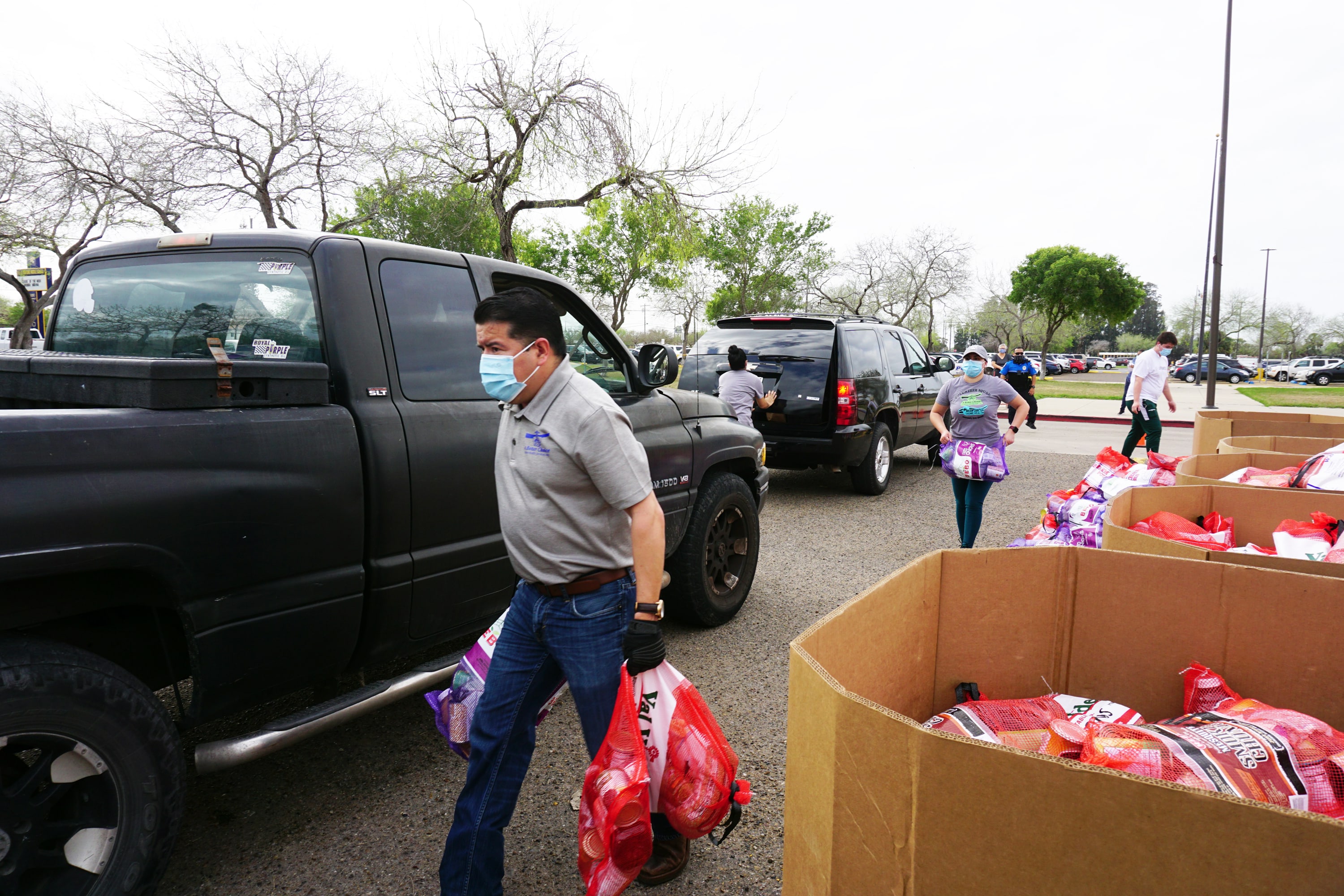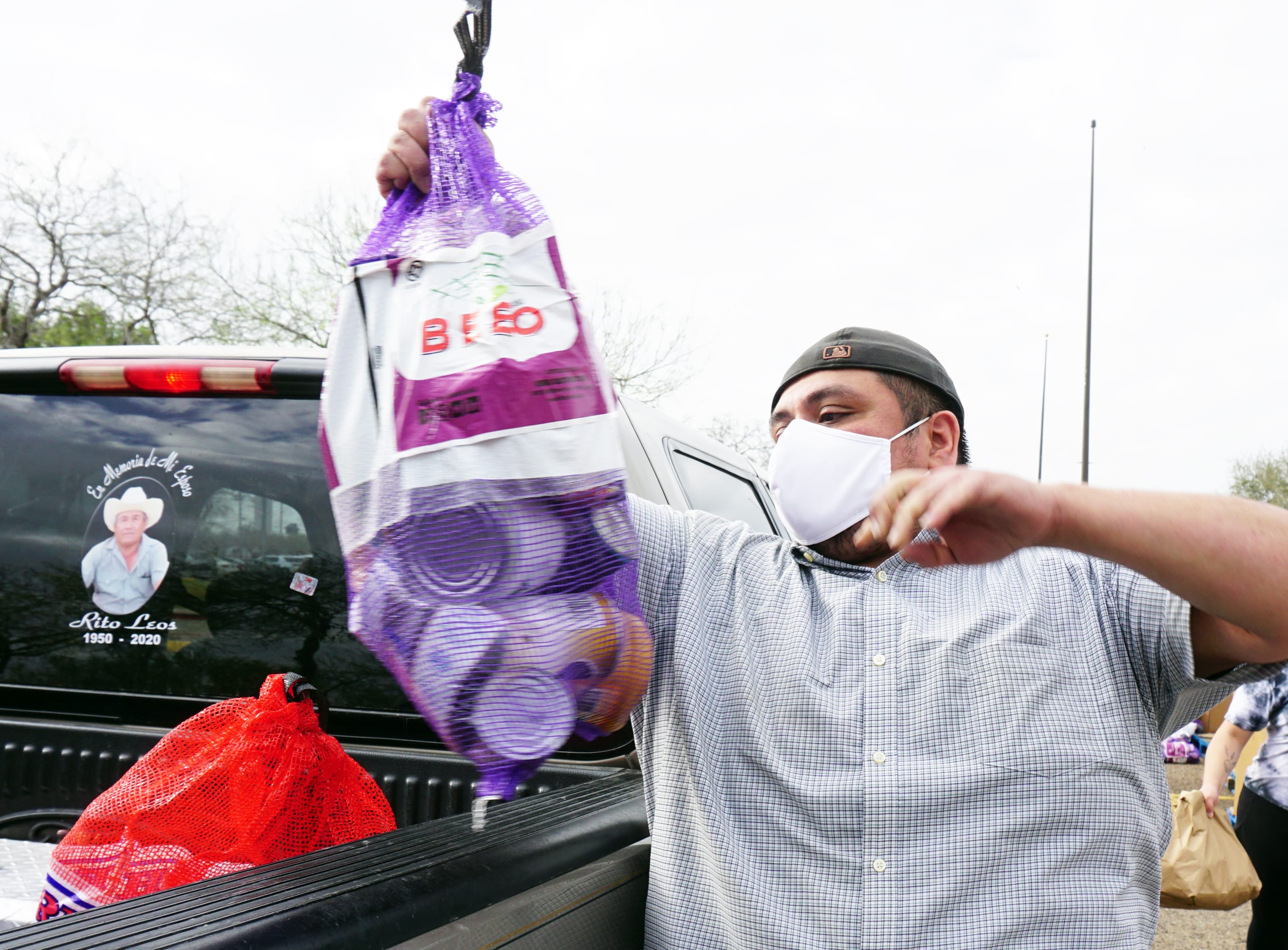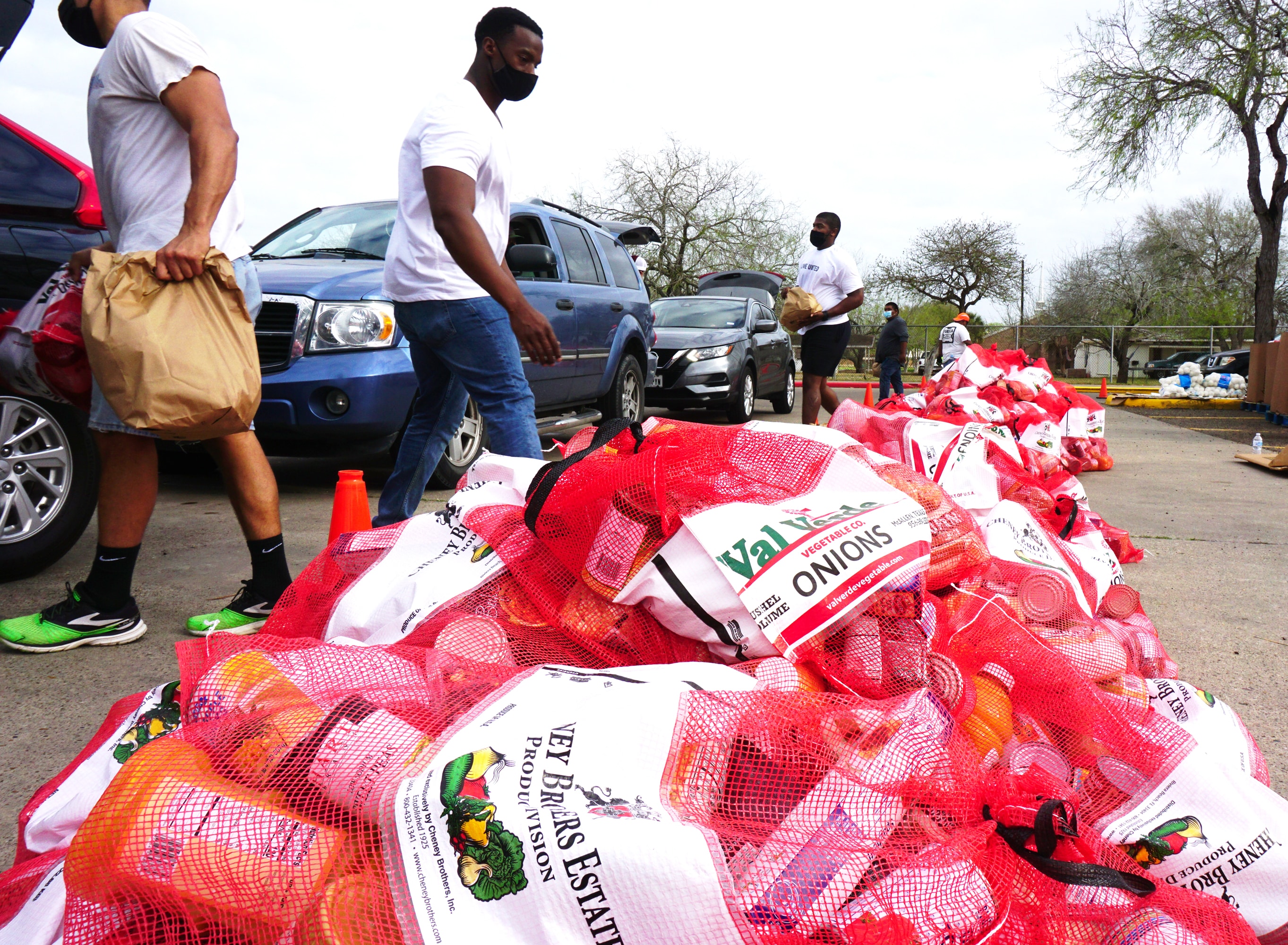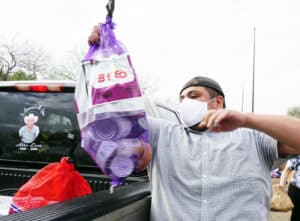
When the pandemic first hit Brownsville a year ago, United Way of Southern Cameron County started to think of a way they could help as many people as possible and focus on the biggest need in the community: food insecurity.
“The restaurants were closed, people in the serving industry like servers and bartenders were all out of jobs,” Wendy de Leon, development and communication director, said.
“There was a lot of uncertainty and I remember that’s when Traci (Wickett) connected with us and said ‘we have to do something and we have to do something now and I need to hear your ideas, because we are going to be focusing on one thing. And it has to be something that creates the biggest impact in our community’. Traci knew that food insecurity is a huge part of our community, even before the pandemic. But during that month, it was amplified by 100.”
Since then, United Way of Southern Cameron County partnered with local entities and new agencies to create United Against Hunger. The program has given out 100,000 bags of food at the mass distributions they’ve been hosting every Friday for almost a year.
“Traci got in collaboration with our community partners and some new agencies that we had yet to partner at the time and that’s when United Against Hunger started,” she said.
“We started with the help of a couple of foundations, the Valley Baptist Legacy Foundation being one of them, and without us knowing that they would be our biggest supporter throughout the whole year. We had our first distribution and I remember it was, like I tell Traci, the blind leading the blind because we had never done a food distribution before. It took us a whole six and a half hours.”
Now, the distributions usually take less than three hours. However, residents are still waiting in line since the night before to secure a bag of food and produce. Each week, United Against Hunger gives out about 2,500 bags of food.
“I remember in our first distribution everybody was so grateful to be receiving this food and that’s a feeling that still has been carried through every distribution,” she said. “Even today, still, this morning we gave out 2,500 bags of food, making it our 100,000 bag. Eleven months in and we are already at 100,000. The first car lines up at 10 p.m., even though we announce and tell people don’t spend the night. We are now ordering more food just to make sure that we don’t have to cut the line off.”
De Leon said now that President Joe Biden announced all adults will be eligible to receive the vaccine in May, she hopes more residents are able to go back to work and rely on their steady paychecks. She said the economic need in the community continues to increase.
“Starting May 1st all adults will be eligible for the vaccine, so, we are looking forward to that,” she said.
“We are looking forward to maybe a summer or a fall where it’s somewhat back to normalcy, and that being people starting to work, and get their lives back on track. Maybe the kids will be back at school and that would be a huge help for the parents.”
De Leon said the need for the mass distributions increased when the new year started, even though they were hopeful there was going to be a decrease. She added they increased even more during the winter storm that hit Brownsville in the middle of February.
“We did see an increase when the new year started,” she said.
“I think we all thought COVID was going to expire and instead we saw an influx of problems. I know that the freeze, three weeks ago, really set us back. I remember we were finally getting a little better, and that week, it did feel like we were taking five steps back. We had a long line and people’s food was spoiled because they were without electricity. So that week, we did make it a point to give eggs, to give milk, to give water and to give the non-perishable bags as well.”
The mass food distributions are set to continue until May but De Leon said they are working to secure funds to continue the initiative at least throughout the summer. She said Get Shift Done will also continue as long as there are mass distributions.
“Get Shift Done directly ties with United Against Hunger, so, as long as United Against Hunger keeps going, Get Shift Done will be going as well. We have 1,300 people that have registered on the app and we have 200 workers that are constantly picking up shifts,” she said.
“We are hoping that by next year things will be a little closer to normalcy, whatever that’s going to look like for us. We hope the kids are back to school, that our community members are back at work. When we talk to our workers, they are dying to go back to work, to get that steady paycheck. Get Shift Done can only go so far.”
To donate, visit unitedwayrgv.org

